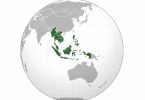Javier Milei, a free-market candidate, emerged victorious in the Argentine Presidential election this week with an overwhelming 55% majority. His key campaign pledges included eliminating the Peso and adopting the Dollar, reducing public expenditure, and promoting economic liberalization.
What would be the impact on the tourism sector – both inbound, outbound, and domestic – in Latin America’s largest economy if he continues with his agenda? How soon can we expect to witness these changes? How significant is this for the international tourism industry?
Market analysts emphasize that any anticipated changes will not occur immediately, as Milei’s assumption of office is still several weeks away, and implementing significant changes takes time. It should also be noted that obtaining legislative approval for these changes would be necessary, and considering his party does not hold a majority, the proposed modifications could potentially be diluted or may not materialize at all.
Despite it still being early, the international investment sentiment appears to be optimistic, as evidenced by the quick rebound in stocks and shares. This indicates that travel businesses in Argentina might soon attract increased attention from investors, leading to more affordable loans and improved access to investment opportunities. This development is undoubtedly positive for travel businesses seeking funds for innovation and growth.
Regarding the potential dollarization of the economy, experts highlight that currently, certain Argentina-based travel providers (such as larger hotels or operators offering tours and activities) that cater to international visitors are already capable of online dollar sales. Nonetheless, this capability is limited to a minority of providers, mainly hotel chains, and does not extend to smaller tour and activity operators. Regardless of the ability to sell in dollars online, once the funds are deposited into their Argentine bank account, they are automatically converted into pesos at the official state rate, which is subject to currency controls and significantly lower than the street exchange rate for cash transactions.
Due to various regulatory measures that hinder businesses and distort the free economy, along with other reasons, a significant portion of the Argentine tourism industry operates in cash and primarily offline.
Looking at it purely from a business standpoint and disregarding any political implications, the potential of abolishing currency controls and deregulating the travel industry appears to have positive prospects in the medium to long run. By eliminating currency challenges and regulations, travel companies would be able to focus on their core competency of delivering travel services without unnecessary risks. This includes mitigating currency exposure and avoiding unexpected obligations or costs that could arise in the future.
The entire travel ecosystem, comprising sellers, providers, and travelers themselves, reaps advantages from the shift from cash to digital payments. Online payment options empower travelers, automated refunds streamline processes, and predictive analytics enable better planning. This transition towards a digital economy is currently absent in Argentina’s travel industry, but its implementation would bring widespread benefits.
Visibly, countries that offer convenient and cost-effective payment options, along with easy online booking and payment facilities, tend to attract a higher number of international tourists. Moreover, introducing competition in the aviation industry would result in increased availability of affordable inbound flights, further enticing tourists. Significantly, these measures would also reignite the interest of Argentines in traveling abroad for vacations, a trend that has been significantly diminished over time. Consequently, Argentina, as one of the world’s top 20 economies, would regain its presence as a prominent international source market.
In the event that the new government fulfills their campaign promises and implements the anticipated reforms, the tourism industry may encounter challenges in the short term. The timing, extent, and potential reversal of these promises remain uncertain. Should the market transition to the dollar, there will be a requirement for new payment processing systems. Furthermore, as businesses begin to operate digitally and sell their products, a significant period of adjustment will be necessary. This transition represents a substantial cultural and technological shift that will entail investments in training, customer communications, and more.
Travel companies previously reliant on government contracts or benefiting from economic and regulatory policies that skewed the travel ecosystem will face the need to rapidly adapt as their primary market vanishes, resulting in inevitable losers.
The stability of Argentina’s economy is crucial for businesses operating in the country, regardless of the path chosen by the Milei government. To ensure long-term planning for travel companies and the overall growth of the global travel industry, it is essential that any decisions made are implemented in a clear, consistent, and lasting manner. This will benefit both domestic and international travelers who wish to explore the beauty of Argentina.
(eTN): Will New Far-Right President Help or Hurt Argentine Tourism? | re-post license | post content























